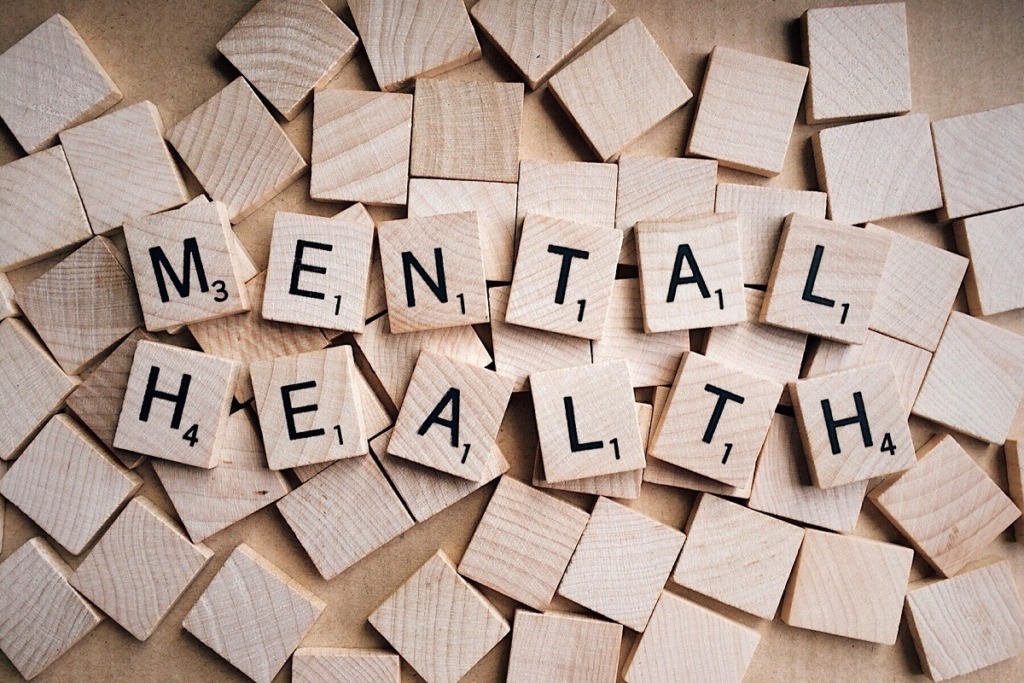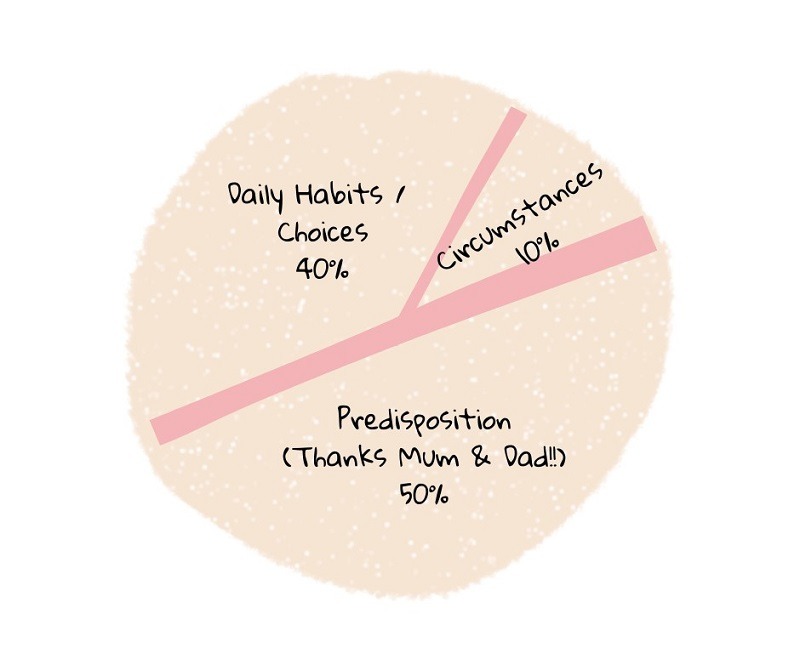
Written by Katie Lowe (BA, GradDipPosPsych)
Everyone knows that in order to stay physically fit and healthy, we need to exercise and take care of our bodies, but how often do we think about what it takes to stay mentally fit and healthy?
People chat openly about exercise, diets and healthy eating all the time - but how often do we talk about maintaining our mental health with colleagues, friends or family?
I know that for me, it’s definitely a lot less!
When people ask me at parties what I do, as soon as I mention that I work in psychology, they instantly get nervous!
Imagine if it was just as acceptable around the work watercooler to discuss seeing a therapist as it is seeing a personal trainer! Or if it was just as cool to take a selfie at your psychology session…
Thankfully, the stigma around mental health is starting to shift, but there is still a lot of misunderstanding and fear around the world of mental health… The reality is that up to one in five people in Australia experience a mental illness each year, and a whopping 45% of Aussies will experience a mental illness in their lifetime.
Now more than ever with everything that is happening in our world, it’s important to be taking care of our mental health.
So what is good mental health? Is it simply the absence of mental illness?
Nope.
You do not need to have a diagnosed mental illness to be experiencing mental health issues or unhappiness. Good mental health is about thriving not just surviving.
There are many different elements that contribute to our mental wellbeing and happiness: stress, physical health, meaning and purpose, social support and connections, career, family & relationships, finances, spirituality, self-care, past trauma & experiences, sleep, diet, thoughts, positive emotions, goals, and the list goes on and on…
Let’s face it, life can be unpredictable! It’s a series of both ups and downs; but staying mentally fit can help buffer and protect you against those inevitable dips.
So let’s talk about some of the things that you can actively do each day to improve and maintain your mental health.

Relationships
Us humans thrive on connection. Our social and emotional connections with our friends and family can be a key ingredient to positive mental health, and something that should be nurtured in order to maintain our wellbeing (aka sanity).
Finding people that care, and can be there to listen and support you through your tough days is invaluable. This can be loved ones, friends, colleagues, a support group, therapist, or health professional.
The important thing to remember is that even though you might feel like curling up in a ball and hiding from everyone under your blanket for the rest of the year; this is not actually what is best for you. Isolating yourself can exacerbate your symptoms, so this is exactly when you need to have a coffee with a friend, take a walk with your partner, or just pick up the phone and call your mum.
Healthy body ∞ Healthy mind
Taking care of your body means that you are also taking care of your mind.
- Make sure that you are getting enough quality sleep each night. Studies show strong links between fatigue, low mood and anxiety symptoms.
- Move your body regularly in a way that feels good for you to get those feel good hormones and neurochemicals pumping.
- Eat healthy foods that help stabilise your mood and support a healthy gut.
Scientists have now discovered that our gut bacteria produces up to 90% of our serotonin! So balancing your gut and adopting a healthy diet can really benefit your mental health.
- And importantly, avoid consuming too many stimulants such as alcohol and coffee (sorry!). Alcohol is a known depressant, so although it may make you feel good for a few hours – it may actually be making things worse.
Positive Emotions
Unfortunately as humans we are all up against it from the beginning, all of us are born with a default negative bias in our brain. Have you ever noticed how quickly and easily your brain can move to the negative in a situation?
This is why it is important to actively cultivate and savour positive emotions. The good news is that we can actually train our brains, just like we can train our muscles, to think differently, and to begin to recognise more of the good stuff!
*Just a caveat here; it’s important to remember that it’s totally unrealistic to be happy all of the time – in fact it is important for us to experience the full range of emotions that come with being human. But just like when an annoying relative comes to visit, it’s important not to let them overstay their welcome!
How to cultivate positive emotions:
- Start a Family Gratitude Jar: Each week you write down one thing that you are all grateful for. It’s super cool to read these together at the end of each month, or year to relive all the wonderful things that happened! You’ll also get a double dose of those feel good hormones!
- Start an Evening Ritual: Each night at dinner time / bed time, take turns in sharing 3 good things that happened today. These 3 things can be as small as enjoying your morning coffee, cuddling your dog, or spotting a beautiful sunset.
- Start a Gratitude Journal: At the end of each day, at least 3 x per week write down three to five things that you are grateful for and why. The key here is to be specific!
- Surround Yourself With Positive Energy: This means being discerning about who you spend time with, and what information and energy you are surrounding yourself with. This includes social media, try to become conscious of how much negative material and energy you are consuming online that may be dragging you down.
Set Small, Achievable Goals
Each day, set yourself small, achievable goals. This could be part of a larger goal you have such as losing weight, getting fit, eating healthier, or working on a project. But it can also be as simple as making your bed, doing some washing, phoning a friend, or taking a walk in the fresh air. Start where you are at.
When you complete these tasks or goals – celebrate! Pat yourself on the back and acknowledge how well you did today, even if you didn’t get everything done, celebrate the small wins. Especially if you haven’t been feeling motivated or have been experiencing low mood. Remember, small steps still count! This is how we build momentum!
Ups and downs of life are all normal. You are not alone, and there are things you can do to take care of your mental health.
Remember that what you do daily matters!
If you or someone you love needs help, please reach out to a trusted professional below.
MENTAL HEALTH SERVICES IN AUSTRALIA:
- Your local GP
24/7 support
- Lifeline 131 114
- Beyond Blue 1300 224 636
- Kids Helpline 1800 551 800
- Suicide Callback Service 1300 659 467
Considering Mental health Considering Mental health Considering Mental health Considering Mental health



